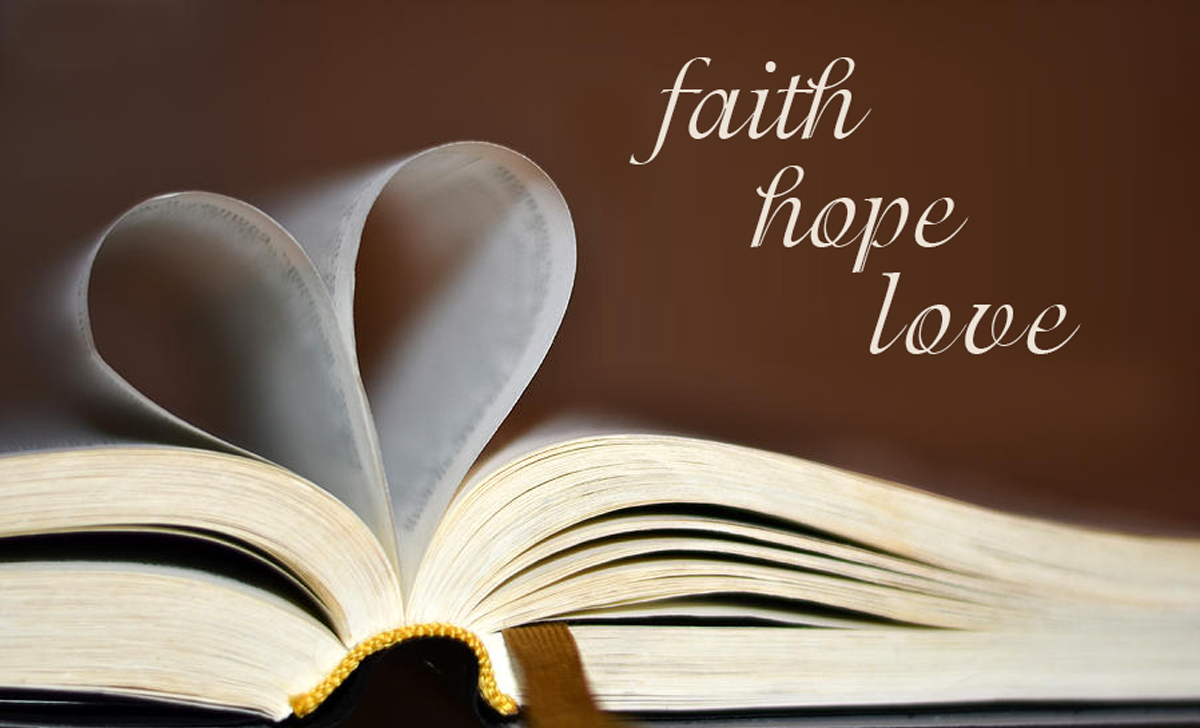
“So now faith, hope, and love, abide, these three; but the greatest of these is Love.” (1 Corinthians 13.13)
I am not thinking about love today, or faith. I am thinking about the other one: hope. I reflect on hope too rarely. Until recently, I never needed to. But now I see hope’s obstacles at every turn, and I hear hope’s diminuendo in voices all around me. It is time I looked for help with hope.
I majored in philosophy, so I know where not to look. No great cache of hope is to be found among the philosophers. But what about the poets? Surprisingly, not a great deal of help is there either - at least not in my poets. T. S. Elliot? No. (Prufrock? No. Waste Land? Definitely not. Even the Four Quartets and other poems after he became a Christian are little help.) Wendell Berry? He mostly writes beautiful lamentations for what isn’t, can’t be, and probably never was. Gerard Manley Hopkins has something to say. But the dosage is too strong for me: “Not, I’ll not, carrion comfort, Despair, not feast on thee; / Not untwist - slack they may be - these last strands of man / in me.” . . . Whew! Too much for me. Mine is more a middling despair. Hopelessness in me looks more like not changing the windshield wipers on my Honda Civic because, you know, that won’t stop it raining.
Dickinson! Sage Emily, surely, she can help. But no. “Hope is the thing with feathers that perches in the soul” [?!]. Come on, Emily. Break out of your quatrains for a moment and bend your brilliant mind to a more serious answer. (She was always better on death.)
The problem is that I don’t want a sentimental hope. I need something solid. Something certain. Otherwise, it’s just the “Power of Positive Thinking.” That won’t do it for me. The power of positive thinking has only the power to put off one day’s depression. The poets, I guess, are either cynics or sentimental. The Greeks, too. Thucydides said, “Hope is an expensive commodity. Better to be prepared.” That sounds about right. He thought, like lots of the Greeks, that hope was just hubris projected into the future. Hubris projected into the future: is that all hope is?
The Scriptures offer something better. The locus classicus is David preaching to his soul in Psalm 42. “Why are you cast down, O my soul? And why are you in turmoil within me? Hope in God; For I shall again praise him, my salvation.” (v. 5) I learn there, first, that I need to preach to myself about hope, to put hope on, practice it, and develop it. But more importantly, I learn that the object of my hope is not a circumstance, but a person! A person in whom I have already put my faith and trust because He is utterly trustworthy, magnificently powerful, eternally alive, and good. Now I understand how the Greeks were wrong about hope. Real hope isn’t hubris cast into the future. Hope is faith cast into the future - faith in a person.
And now I begin to understand my motivation for work and life and the pitfalls. The trap is when I set my hope on circumstances: a plush budget, success in my endeavors, an election outcome, a judicial decision, my side to win the war, and so on. These are all, all, all maybes. I will not put my hope in a mere maybe. That really would be hubris projected into the future. But God is not a maybe. God’s will is not a maybe. His promises are yea and amen! Because I have faith in God’s promises, I can put my hope in His purposes.
The mistake of hubris is to presume that our purposes are God’s. Rather, we need to submit our purposes to His. When we do that - submit our purposes to God’s - then our hope will be inflamed.
If we shrink God’s Kingdom to the size of our moment, then our hope shrinks with it. But if we grow our vision to the size of God’s Kingdom, our hope grows with it. And that solid hope will carry us through any circumstance!
“May the God of hope fill you with all joy and peace in believing, so that by the power of the Holy Spirit you may abound in hope.” (Romans 15.13)







